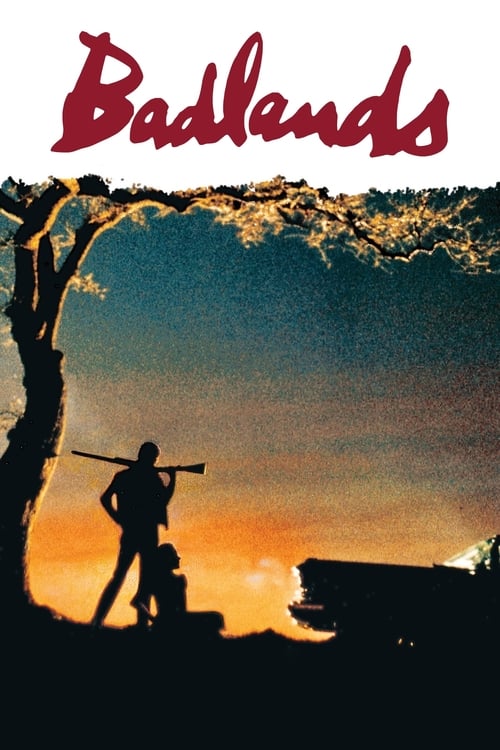
Title: Badlands
Year: 1974
Director: Terrence Malick
Writer: Terrence Malick
Cast: Martin Sheen (Kit Carruthers),
Sissy Spacek (Holly Sargis),
Warren Oates (Holly's Father),
Ramon Bieri (Cato),
Alan Vint (Deputy),
Runtime: 94 min.
Synopsis: An impressionable teenage girl from a dead-end town and her older greaser boyfriend embark on a killing spree in the South Dakota badlands.
Rating: 7.471/10
A Mirage of Innocence: The Haunting Poetics of *Badlands*
/10
Posted on July 18, 2025
Terrence Malick’s Badlands (1974) is a cinematic poem that lingers like a half-remembered dream, its beauty inseparable from its disquiet. Inspired by the real-life Starkweather-Fugate killing spree, the film follows Kit (Martin Sheen) and Holly (Sissy Spacek), two young lovers drifting through the American Midwest, leaving a trail of casual violence. Malick’s debut is not a crime thriller but a meditation on innocence corrupted by aimlessness, rendered through a lens of stark lyricism. The film’s power lies in its direction, cinematography, and Spacek’s haunting narration, which together craft a paradox: a world both radiant and rotten.
Malick’s direction is a masterclass in restraint, letting silences and landscapes speak louder than dialogue. He frames Kit and Holly against endless plains and golden sunsets, their rebellion dwarfed by nature’s indifference. This is no romanticized Bonnie and Clyde; Malick refuses to glorify their violence, presenting it with chilling detachment. Kit’s murders are impulsive, almost bureaucratic, while Holly’s complicity is born of boredom rather than malice. Yet the film falters slightly in its pacing some scenes meander, diluting the tension of their fugitive odyssey. This looseness, though, mirrors the characters’ own aimless drift, a flaw that feels intentional if not always engaging.
The cinematography, credited to Tak Fujimoto, Brian Probyn, and Stevan Larner, is a triumph of visual storytelling. Every frame is a painting wheat fields shimmering under twilight, a lone house glowing against a storm-black sky. The camera’s gaze is both intimate and distant, mirroring Holly’s detached narration. Spacek’s voiceover, delivered in a flat, diary-like tone, is the film’s soul, blending childlike wonder with eerie apathy. Her words, written by Malick, elevate the screenplay from mere narrative to philosophical inquiry, asking how innocence can coexist with evil. Sheen’s Kit, meanwhile, channels James Dean’s restless charisma but lacks depth in quieter moments, a minor weakness in an otherwise magnetic performance.
The music, sparse yet evocative, weaves Carl Orff’s celestial compositions with Nat King Cole’s crooning, grounding the film’s mythic quality in human longing. The South Dakota and Colorado locations are characters themselves, their vastness exposing the futility of Kit and Holly’s rebellion. Badlands is not a story of heroes or villains but of lost souls chasing meaning in a world too vast to care. Malick’s genius lies in making their tragedy feel both inevitable and strangely beautiful.
0
0
